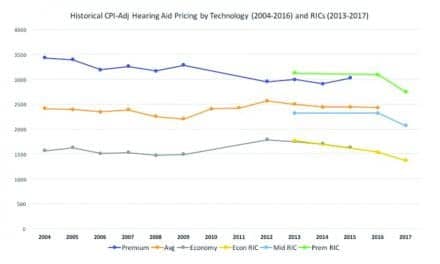By Daniel Blank
The vast amount of sensitive patient data in health services makes compliance with the Health Insurance Portability and Accountability Act (HIPAA) a critical responsibility as well as a legal requirement for every healthcare organization. As part of this, implementing advanced cybersecurity solutions, managed services, and infrastructure are a must to protect patient data.
Yet, even with next-gen technical safeguards, many organizations still find themselves violating HIPAA, not due to inadequate cybersecurity measures, but because of a less-discussed, yet highly important element of compliance: the human factor.
Further reading: Password Management Is Not an Option — But a Necessity
Many HIPAA violations result from employees negligently disclosing private patient information, often without realizing it and without any malicious intent. However, a single incident can lead to serious consequences for offenders and organizations that fail to train them on best practices. To avoid incidents and retain patient confidence, healthcare organizations must prioritize employee HIPAA compliance training.
Why Employee HIPAA Violations Occur
HIPAA violations occur for many reasons, but one of the most common is that healthcare workers simply don’t realize their actions violate the act. Many believe their actions benefit their patients. For instance, a nurse might discuss a patient’s medical issues with a coworker to get advice on better care. Another example could be a doctor discussing a patient with a colleague in a public setting, unaware that others can overhear. And hearing healthcare is not immune to such unintentional violations.
Healthcare professionals work in a stressful, fast-paced environment where it can be difficult to follow best practices. It can be challenging to remember how to handle sensitive documents or who is permitted to know certain information. The chaotic environment of healthcare makes it easy to slip up on HIPAA compliance. These environments also make it challenging to absorb training materials effectively, as the constant barrage of credential requirements can lead employees to take these matters less seriously.
Most healthcare workers are compassionate, trusting people who aren’t actively trying to exploit their patients’ sensitive information. But the hectic nature of their job makes it hard to remember if they’re maintaining HIPAA compliance. Despite this, both healthcare workers and their employers have a duty to ensure compliance.
Keep HIPAA Training Simple
The most effective way to ensure employees understand the severity of HIPAA compliance is with the right training approach. As previously mentioned, employees often have trouble retaining all training materials, so keeping lessons as simple and straightforward as possible makes all the difference.
Another useful approach is to avoid framing training as “compliance,” and instead as a continuation of their regular patient care. Make employees realize that HIPAA violations don’t just impact the organization, but patients as well. Keeping sensitive details regarding their health can maintain an expected level of privacy, but more importantly, prevent information from falling into the wrong hands.
Simple statements or mantras can be useful for reminding employees how to approach patient information. Examples include:
- The patient’s business is nobody else’s business.
- No release form, no information.
- What happens in the sound booth stays in the sound booth.
Make Training Entertaining
Sterile, boring training seminars immediately lose employees’ interest. Considering the severity of HIPAA violations, healthcare leaders need to guarantee employees retain this information. One of the best ways to do this is by making HIPAA training entertaining and casual in nature.
An entertaining training session doesn’t demand Hollywood-grade production values; incorporating elements of humor and shock can make presentations memorable and fun, all while emphasizing an important message about keeping patient information safe. Incorporate lighthearted elements, such as a funny song or having a mascot deliver key tips about HIPAA compliance. Shock value can come from examples of healthcare companies failing to comply, and highlighting the consequences of those actions.
Foster a HIPAA-Compliant Culture
HIPAA compliance isn’t a one-time event, but a daily practice that demands continuous behavioral changes. Creating a culture that aligns with HIPAA helps ensure employees are regularly reminded of how to approach their work in specific environments.
Recruiting “HIPAA Ambassadors” can reinforce best practices and motivate employees to maintain compliance. These ambassadors can promote good behavior by recognizing those who avoid violations, creating a positive incentive for employees to follow the rules.
Making “accountability” a component of a HIPAA-compliant culture can also reinforce an employee’s share of responsibility. Legally, accountability means that violations lead to fines, but it also refers to an employee’s role in keeping patient information private. Adding this cultural element helps make it clear that they play a major role in protecting confidential information.
Remind Employees About Bad Actors
Employees must understand that HIPAA compliance isn’t all about steering clear of regulatory or legal violations, but keeping private information safe from bad actors who want to steal and exploit it. If this information wasn’t valuable, it wouldn’t be worth stealing.
Regularly remind employees that bad actors can use patient information for nefarious purposes, so they can adjust their working styles with patient confidentiality in mind. Avoid creating a fearful or paranoid working environment, but make it clear that seemingly simple HIPAA violations can lead to severe outcomes that can put patients at risk.
Avoid Repetitive Training
Regularly presenting the same HIPAA compliance training is an easy way for employees to dismiss its importance. Make sure that presentations are fresh and include new information to consider. This can involve adding better practices, alternative phrases, new violation examples, or adding games and group activities to increase participation.
A single course on HIPAA compliance that goes unchanged for years simply won’t work as effectively. As the saying goes, “familiarity breeds contempt,” so keep training fresh with new content so employees stay engaged and retain key information.
Employees play a critical role in maintaining HIPAA compliance, so thorough and well-designed training is a worthy investment to avoid violations. Ensure all hearing care professionals complement robust technical compliance measures by following best practices and avoiding the sharing of private information that could put patients and healthcare organizations at risk.
Daniel Blank is the COO of Hornetsecurity. He has over 15 years of experience selling complex IT products, and 15+ years of various managerial positions in the cloud security environment. Blank joined Hornetsecurity in 2010 as key account manager, quickly becoming director of sales, and finally assuming the role of COO in 2014. Today, he is responsible for sales, presales/education, and human resources at Hornetsecurity.





